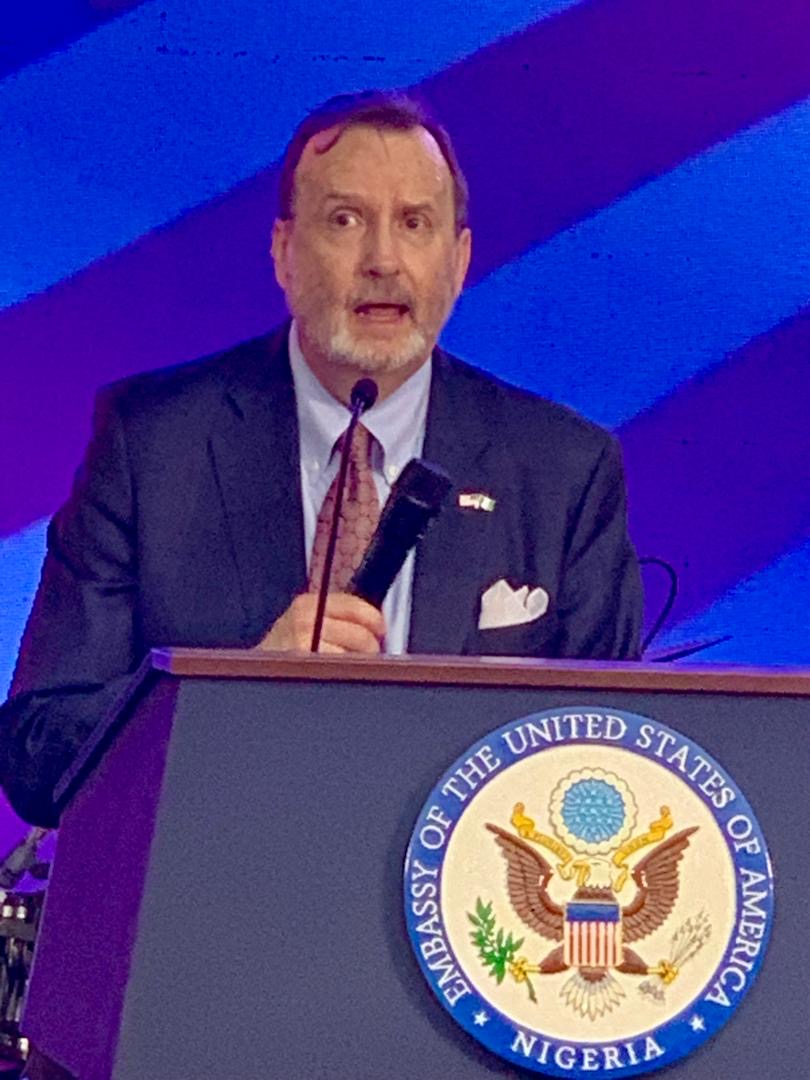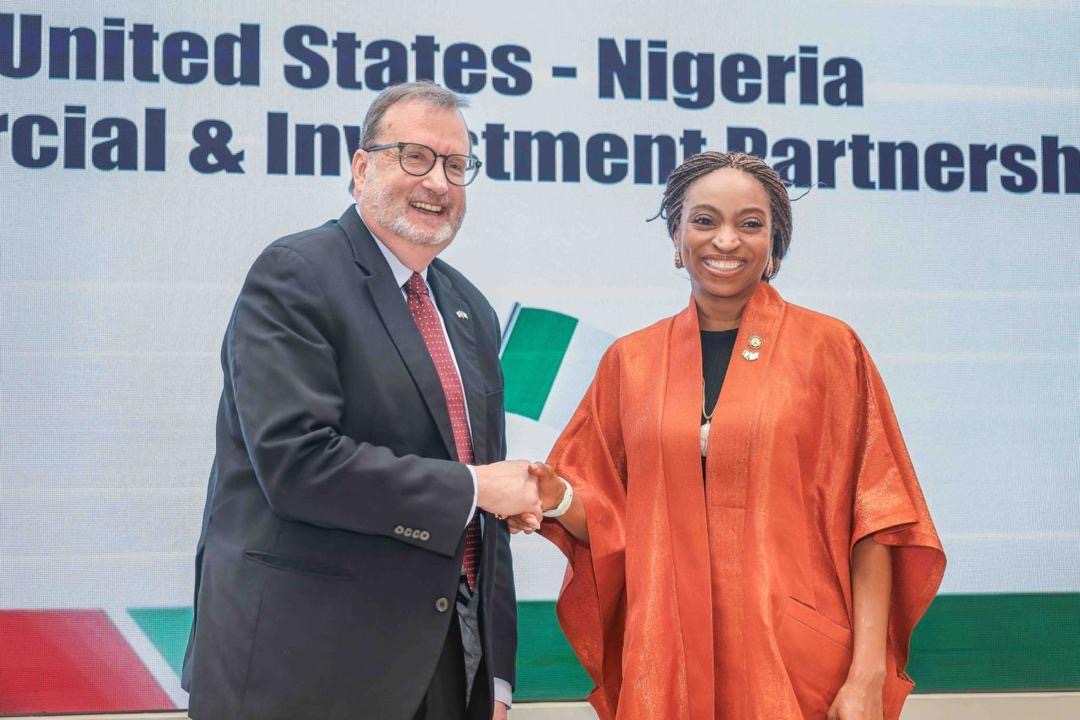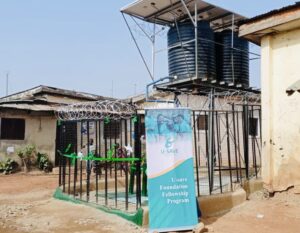By Mark Longyen, News Agency of Nigeria (NAN)
Donald Trump, was inaugurated on Monday for second time as the President of the United States of America, thus becoming the 47th president of the country.
Trump, of the Republican Party, was first elected as the 45th U.S. President in 2016 but lost his second term bid to immediate past President Joe Biden of the Democratic Party in 2020.
Analysts are of the view that Trump’s re-election, and the Republican Party’s return to power four years later, are coming with deep apprehension and could birth far-reaching impact on U.S. foreign policy, international relations, global economy, trade, and security.
They say Trump’s prompt, audacious, controversial cabinet picks are indicative of a paradigm shift amid an imminent intriguing exercise of global political power in the U.S., and its inevitable global fallouts.
The world is perhaps on the cusp of witnessing a U.S. foreign policy roller coaster, characterised by a terrifying ‘global deep state, and new world order.’
It is a frightening scenario whereby it appears media moguls and industrial tech billionaire titans, transcending traditional boundaries of information and financial influence would be holding the world by the jugular.
The ‘deep state’ claim presupposes the existence of a secret network of powerful individuals and groups within government, intelligence agencies, and other institutions, who control and manipulate a nation’s policies and decisions for their own ends.
The ‘new world order’ conspiracy theory presupposes the existence of a group of powerful individuals and organisations working to create a ‘one-world government’ that would control all aspects of life, eliminating national sovereignty, and individual freedoms.
It is noteworthy that the world’s richest man and tech titan, Elon Musk; Facebook icon, Mark Zuckerberg; Amazon chief, Jeff Bezos; and Google CEO, Sundar Pichai, all had prime seats in the Rotunda of the U.S. Capitol alongside Trump’s family and cabinet members during his inauguration on Monday.
The global deep state and new world order, therefore, presuppose an ambitious agenda that extends beyond traditional U.S. borders and envisions a world, where the U.S. expands its spheres of influence through aggressive manoeuvres and holds the world in an agonising vice grip.
This is, perhaps, best exemplified by Trump’s inordinate ambition to acquire Greenland from Denmark; assimilate Canada as the 51st U.S. state; and assert control over strategic assets like the Panama Canal and the Gulf of Mexico, which it proposes to rename the Gulf of America.
This brazen display of imperialistic ambition, to be propelled perhaps by the use of military force, is already generating diplomatic goose pimples within the international community, raising serious concerns over the sovereignty of nations and the efficacy of multilateral institutions like the UN.
Trump’s re-election, no doubt, signifies the convergence of power and influence that is unprecedented in recent history, and casts a long shadow over established norms of governance and international relations.
He is set to sign no fewer than 200 executive orders, engage in strategic alliances with high-level financial and industrial entities, and collaborate with like-minded right-wing governments globally to reshape the global geopolitical landscape, perhaps, in the deep state’s interest.
The deep state epoch, observers note, draws parallels to historical precedents, such as the military-industrial complex (MIC), which in the past profited from perpetual warfare around the world.
It now finds resonance in the emerging Tech-Industrial Complex (TIC) led by figures like Musk and President Trump.
Trump’s promotion of cryptocurrency, which he earlier stood against, poses a direct existential challenge to national currencies and economic autonomy, that may further destabilise the existing global financial order.
Social media platforms like Facebook, Instagram, X, TikTok and traditional media outlets like the Washington Post, LA Times, Fox News, etc, are probably being harnessed to craft a narrative that is conducive to the new global agenda.
Jonathan Ishaku, a renowned journalist and analyst, for instance, likens the situation to a war scenario in which truth is the first casualty in a world where war is a metaphor for the challenges facing democracy.
“In war, truth is the first casualty,” he said, quoting Ancient Greek dramatist and tragedian, Aeschylus (525-455 BC).
“The pervasive influence of these powerful actors extends to the realm of media and technology.
“By blurring the lines between fact and fiction, truth and propaganda, these entities propagate a distorted reality that serves the interests of the ruling elite, while silencing dissent and critical inquiry.
“We are set to delve into an intricate web of political intrigue and global machinations, with the emergence of a new world order orchestrated by a clandestine network of the global deep state,” he said.
Prof. Bolaji Akinyemi, former Minister of Foreign Affairs and one-time Director General, Nigerian Institute of International Affairs, NIIA, while faulting Trump’s inaugural speech, described it as “uninspiring, shocking and depressing.”
According to him, instead of rallying the world for peace, Trump audaciously threatened the rest of the world with a bouquet of hostile policies.
He listed the controversial policies as the proposed taking back of the Panama Canal, renaming the Gulf of Mexico as the Gulf of America, tariff wars, among others.
The erudite foreign policy analyst and think-tank said Nigeria is out of Trump’s focus, so she should not expect anything extraordinary from his presidency, and urged President Bola Tinubu to avoid confrontation with Trump.
“The world is in for a rough ride for four years of the Trump presidency.
However, the U.S. president will soon learn that there are repercussions to policies, to jingoism,” he said.
Sen. Shehu Sani, outspoken Nigerian former lawmaker, while corroborating Akinyemi’s view on Trump’s return to power, says that, with the inauguration of Trump, the stage is set for a drastic and aggressive change in global politics and leadership, which poses a great challenge to the world.
“Mr Trump takes over the American Presidency today. A disruptor takes power. It’s going to be a great challenge to the world. It’s going to be an American nationalist and businessman versus the world.
“He will pull the plug or change the plugs at the UN, EU, NATO and America’s relations with the world. He will be feared and not loved, and will ultimately face resistance by allies and foes.
“He will try to reset everything and that is where the discomfort will come. Africa should not expect anything much from Trump, even though Biden didn’t do much either.
“Trump may be the drug the world needs to wake up or to stay awake. However, the world must not give up or compromise its universal human values,” Sani said.
Martina Canesi of the European Student Think-Thank, ESTT, says that Trump’s second tenure will have serious global security, populist and economic implications, particularly in Europe.
“His decisions will shape the current war in Ukraine, the rising tensions across the Middle-East, and the trade conflict with China.
“The effects of Trump’s re-election will be particularly challenging for Europe. European states, long-standing allies of the U.S., have relied on America’s defence guarantees since the 1950s,” she said.
Julia Graham, the CEO of Airmic, a risk management outfit, expressed the fear that the imminent changes in U.S. foreign policy under Trump could either influence or jeopardise security risks and diplomatic relations worldwide.
“One might argue that a further Trump presidency is the greatest threat we face to innovation and global stability.
“The U.S. President significantly influences international trade, financial markets and geopolitical dynamics,” she said.
Similarly, Trevor Treharne of the Centre for Global Higher Education (CGHE), London, while analysing the new Trump era, said Trump’s second term could bring chaos around the world.
Treharne said that the world should brace up for Trump’s regulatory rollbacks, a return to his first term’s controversial approach to international relations, and an ‘America First’ economic approach that may put global trade in a tailspin.
“The ripple effects of Trump’s tariff ambitions will leave risk managers, especially those with global operations, much to consider.
“Decisions over the coming years could affect trade policies and economic strategies, affecting supply chains and market stability,” he said.
Nick Walsh, a foreign policy analyst and CNN’s Chief International Security Correspondent, while speaking on the implications of Trump’s second tenure said that “the international order is going to be under greater stress.”
Dr Joe Okei-Odumakin, activist, human rights lawyer and President, Centre For Change, however, says Trump will restore stability in troubled regions globally by curbing terrorist groups’ activities and reining in their sponsors.
She said that Trump’s ascendancy has sent positive signals that would definitely expand the global peace process, especially in the troubled Middle East region, which would be a significant boost to the region’s peace process.
“Trump’s administration is also expected to produce an acceptable deal to the global community, particularly with regards to the ongoing negotiations with Iran over its nuclear programme.
“On immigration, Trump’s stance, though controversial, may not be as severe as perceived in Africa and other developing regions.
“No serious government anywhere can condone illegal immigration and thereby compromise its national security,” she said.
Observers argue that, overall, Trump’s re-election is nonetheless expected to exacerbate existing regional cum global geopolitical tensions, as his confrontational approach to foreign policy may reshape alliances and create friction between nations.
His insistence that NATO and European countries should increase their defense spending may lead to a re-evaluation of transatlantic security arrangements, potentially weakening the alliance.
Trump’s European diplomacy may embolden nationalist populists, potentially leading to increased fragmentation and polarisation within the EU.
In the Middle East, his policies on Iran and Israel may lead to increased conflict and instability that could draw the ire of Iran, North Korea, China, and Russia and, perhaps, precipitate their mutual collaboration.
Trump’s Asian foreign policy, especially his administration’s approach to China, Taiwan, North and South Korea, India, the Philippines, among others, may lead to increased tensions, potentially destabilising the region.
His administration’s approach to counter-terrorism and conflict resolution may involve more unilateral actions, potentially destabilising fragile regions like the Middle East, North Africa, the ECOWAS bloc and the Sahel.
The new president’s emphasis on “America First” principles may lead to isolationist and protectionist foreign policies, affecting both allies and adversaries alike, global market dynamics, and potentially triggering retaliatory measures from other countries.
The impending imposition of tariffs on imports from countries like Mexico and Canada may also lead to a trade war, which would impact businesses and consumers worldwide.
Trump’s economic policies, including tariffs and trade restrictions, may disrupt global supply chains and impact international trade agreements.
It, therefore, remains to be seen if the threat of the deep state, new world order scenario under Trump is real or imaginary. (NANFeatures)
***If used, please credit the writer and the News Agency of Nigeria.








 He described the project as an important step towards building a more resilient and water-secure future for the country.
He described the project as an important step towards building a more resilient and water-secure future for the country.